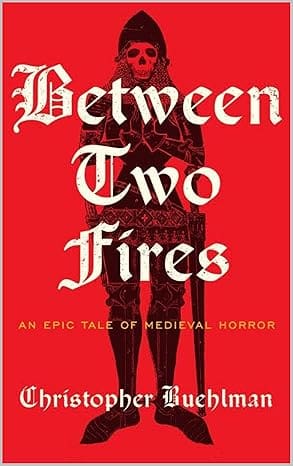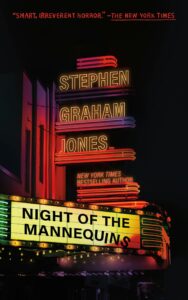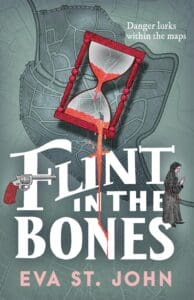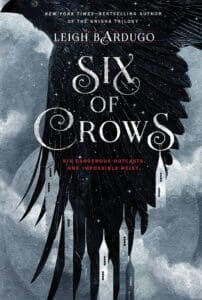
Synopsis
And Lucifer said: “Let us rise against Him now in all our numbers, and pull the walls of heaven down…”
The year is 1348. Thomas, a disgraced knight, has found a young girl alone in a dead Norman village. An orphan of the Black Death, and an almost unnerving picture of innocence, she tells Thomas that plague is only part of a larger cataclysm—that the fallen angels under Lucifer are rising in a second war on heaven, and that the world of men has fallen behind the lines of conflict.
Is it delirium or is it faith? She believes she has seen the angels of God. She believes the righteous dead speak to her in dreams. And now she has convinced the faithless Thomas to shepherd her across a depraved landscape to Avignon. There, she tells Thomas, she will fulfill her mission: to confront the evil that has devastated the earth, and to restore to this betrayed, murderous knight the nobility and hope of salvation he long abandoned.
As hell unleashes its wrath, and as the true nature of the girl is revealed, Thomas will find himself on a macabre battleground of angels and demons, saints, and the risen dead, and in the midst of a desperate struggle for nothing less than the soul of man.
Review
Recently, I woke up and decided that I really wanted to read a book that is full of colour, joy, light-heartedness and low stakes. So, obviously, I decided to start reading Between Two Fires by Christopher Buehlman, the medieval Black Plague era set cross-genre travelogue about a disgraced knight, a drunken priest, and a girl of pure heart, as they travel across a ravaged France on a quest from seemingly a higher power. Along the way, they’ll encounter horrific monsters, festering pestilence, and terrible, terrible people. Of course, I jest. I knew this book was going to be dark, and it was deliciously so.
But it will be harder for you if you remember. Love is always harder. Love means weathering blows for another’s sake and not counting them. Love is loss of self, loss of other, and faith in the death of loss.
Let’s cut the awful jokes and get straight to brass tacks: Between Two Fires is a great book. For me, it’s very much like a meaty lasagne. There so many layers to this novel that Buehlman weaves together effortlessly, much like how he blends together the horror, historical fiction and fantasy genres in a manner that feels natural. It’s a very atmospheric novel. I really felt the grit and grime of its medieval setting, the stink of the cities, the mud of the countryside, the rot that slowly permeates throughout its pages as we watch this world decline more and more into a nightmare hellscape. Whilst I’m by no means a learned historian, there was enough historical research included for myself to lend it an air of authenticity which only boosted its twisted atmosphere, yet it does not feel archaic. Instead, the characters and values of this period feel like they have been coated with a modern lens understandable to us nowadays, but never shying away from the faults of this era. Between Two Fires is also a novel steeped in symbolism. There’s not a chapter that goes by that doesn’t add some imagery or allegory, whether it be in relation directly to the characters, overall themes of the story (which include redemption, corruption, faith & forgiveness), or some allusion to religious understanding or mythical beliefs of the time. I’m a pretty stupid person, so some of these went over my head, but to say that I haven’t been finding myself down rabbits holes exploring what smarter people than me have discovered within this book would be a lie. It’s fascinating to explore these interpretations, and it recontextualises many of the bigger moments once you make the connections.
The book itself has a very distinct writing style. I likened it to reading Cormac McCarthy’s Blood Meridian, in a sense that this feels like its been bled from the same experimental vein. I felt like it had this very matter-of-fact style of narration, which makes reading the more “mundane” parts feel very grounded, very real. (Mundane is the wrong word to be using. I suppose I mean the more “normal”, but how can I describe a time that is as abnormal as Middle Ages Black Plague Europe using that word?) But then when we move into the moments of madness, of feverish delirium, this style only highlights the wrongness that the characters themselves can’t quite describe or comprehend, but Buehlman does understand these forces of darkness and presents them to us unfiltered. The dialogue heavy interaction between our main trio in particular reads like the script of a play. With very few dialogue tags, and little stage direction where other authors would have included this, its up to the reader to relate themselves to each character in the moment.
Praise has to go to the horror elements, of which they were plentiful and brilliantly depicted. The way that Christopher employs the “less is more” approach (and not the way that Lovecraft does where he just says that something is too horrible to describe and then doesn’t say anything else) and merely hints at the horrors that the characters face is great, leaving room for the reader to fill in the blanks with their own web of awful imagery. I desperately wish I could talk about these elements in more detail, but that would be spoiling the surprises (and the creeps!) for you all.
The scariest part, however, was how the book was set in France!
The injuries of spring are forgotten in the summer, but remembered in the winter.
With all this said, no book would worth its salt unless the characters and character work is up to par, and I’m happy to say that Buehlman delivers in this area too. If you’re a fan of the seminal PlayStation mushroom-‘em-up The Last of Us, you’ll find a lot to love in the relationship between the knight & the girl. Beginning the journey as two people that are reluctantly slammed together after a tumultuous first meeting – and really only sticking together to serve their own wants – following both of their arcs throughout the terrible events that befall them is simply gripping, wholly satisfying, and expertly told, feeling like a natural progression of broken people with their better selves finally breaking through after cracking the shell they’ve encased themselves within. I also don’t think that it’s said enough that this book can, at times, be quite funny. A number of character interactions left me chuckling away. In a bleak book such as this, these moments of levity help to humanise those portrayed. I generally say that if a books character work has me caring about the cast, then that’s the mark of a good book. If it has me crying (or tearing up), then that’s the mark of a great one!
This pestilence cooked away pretense and showed people’s souls, as surely as it eventually showed their bones.
In just one novel, Christopher Buehlman cements himself as an author that I’d consider to be of exceptional talent, and one with who’s other works I’m excited to jump into (notably his latest fantasy releases, The Blacktongue Thief & it’s follow up prequel, The Daughter’s War). This is a novel that can be enjoyed by fans of historical fiction, horror, and fantasy. It’s a dark, dank, depressing and dreadful experience, yet one so thoroughly riveting, visceral and, ultimately, hopeful. I can’t recommend this enough!








Leave a Reply